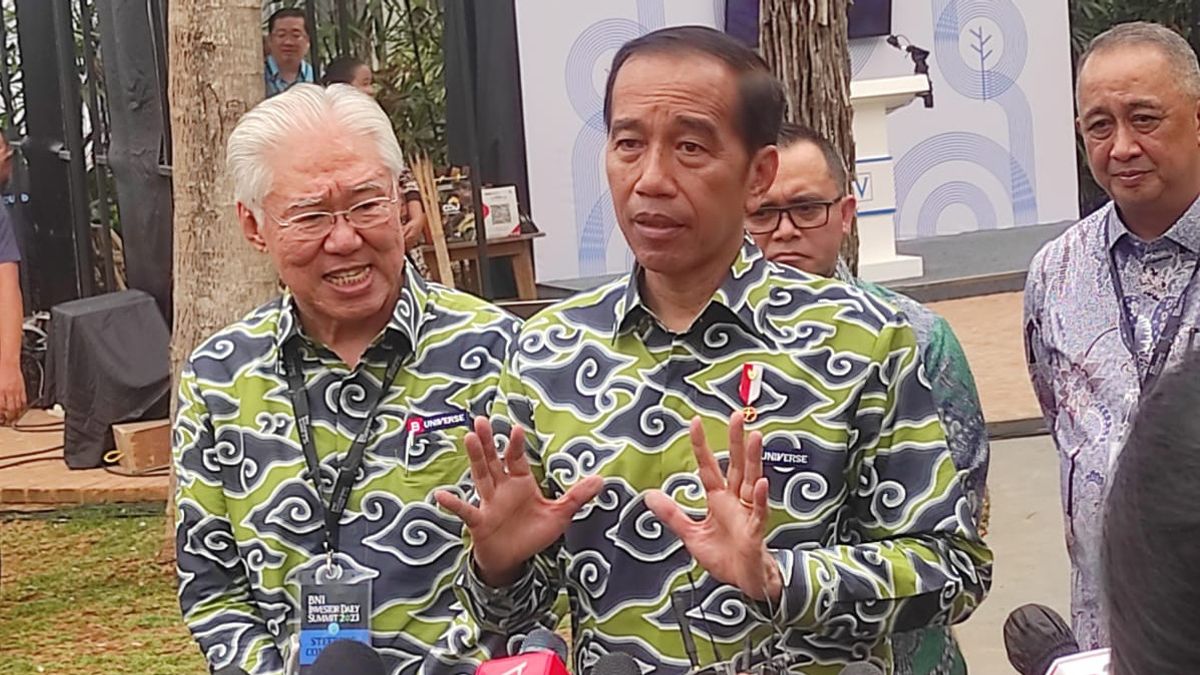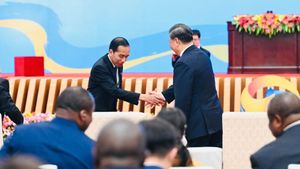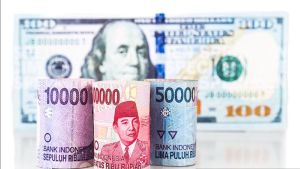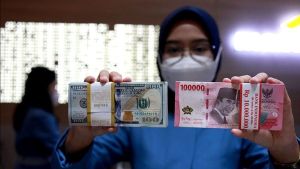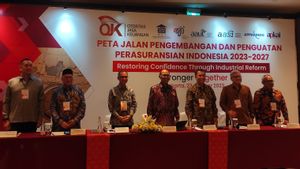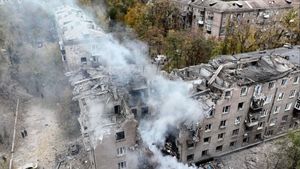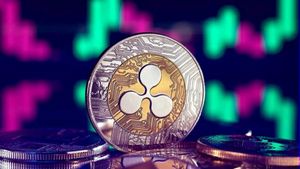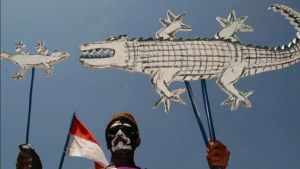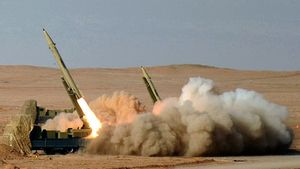JAKARTA - President Joko Widodo (Jokowi) admitted that currently, the world economy is increasingly unclear because world economic challenges continue to come.
"Today's world is increasingly unclear, the challenges we face are not decreasing but increasing," said Jokowi in his remarks at the BNI Investor Daily Summit, Tuesday, October 24.
According to Jokowi, the first challenge comes from climate change, where previously this problem was considered something absurd. But now it all becomes very real.
Jokowi gave an example of the Super El Nino weather cycle which caused rice production to decline further. Plus, many countries are holding back rice exports, making the price of rice even more expensive.
"Now everything is real, we are experiencing drought, super El Nino and rice production has fallen in almost all countries. In fact, 22 countries have stopped exporting rice again," explained Jokowi.
Apart from climate change, Jokowi conveyed that the next challenge is the prolonged weakening of the global economy. Many people predict that the economy will improve this year, but in fact, it has not happened.
Jokowi added that the high-interest rate policy in the United States also threatens Indonesia's economic stability.
As well as creating a lot of capital flowing out and into the United States.
"The high and long-term increase in interest rates by the US is also increasingly complicating (economic conditions), especially developing countries, capital outflows are returning to the US, complicating things for all of us," he explained.
Jokowi said that geopolitical problems were also increasing, namely the unfinished war between Ukraine and Russia, plus the war between Hamas and Israel, which meant that a number of economic challenges continued to increase.
According to Jokowi, a war in the Middle East will be very worrying for many countries because, if the war spreads, it will involve surrounding countries so that oil prices could rise again.
"If it spreads to Lebanon, Syria, Iran, it will further complicate the economies of all countries because oil prices will definitely rise," he said.
VOIR éGALEMENT:
Jokowi added that the last time he checked the price of Brent oil it was still at the level of 89 US dollars per barrel.
No, if war spreads in the Middle East, oil prices could soar to as high as 150 US dollars per barrel.
"I checked yesterday that the Brent price was still 89 US dollars per barrel, but if it spreads we don't know, it could reach 150 US dollars per barrel," said Jokowi.
The English, Chinese, Japanese, Arabic, and French versions are automatically generated by the AI. So there may still be inaccuracies in translating, please always see Indonesian as our main language. (system supported by DigitalSiber.id)
